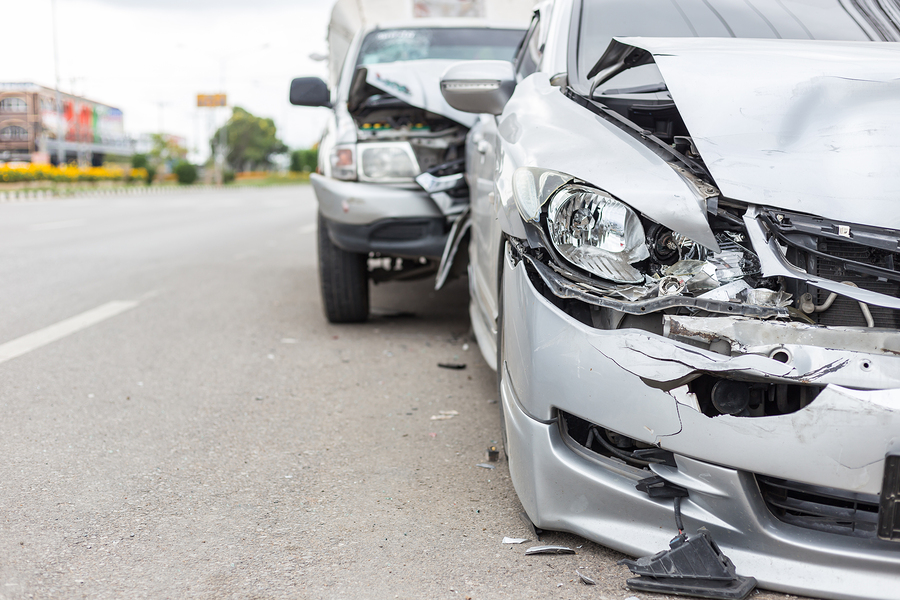Car accidents typically create stressful moments in people’s lives. They worry about paying medical bills and may have to stay home from work. The insurance company might send a claimant a small payment or deny their claim. Consequently, a person might think they do not have any options.
The law may state otherwise. You should see a car accident lawyer soon once you begin your recovery. A motor vehicle collision attorney lets you know if you have the option to sue the other party. If you can, they will help you through the process.
Who Pays for Your Injuries After a Car Accident?

In most states, the at-fault driver's insurance company pays for damages after an accident. You would file a claim with the insurer to get reimbursement for your injuries. On the other hand, other states make you rely on your own coverage for payment. Of course, you can still have the other side pay additional compensation if the damages were severe.
The amount of money you receive may differ from another person's settlement. The severity of the damage and policy limits can affect how much an insurer gives you.
The initial offer may not be enough to pay for the accident-related expenses. You should not accept any money until you speak with an attorney. A lawyer calculates how much the other party owes you and negotiates on your behalf.
Can You Sue After a Car Accident?
Across the country, roughly five to six million motor vehicle collisions happen each year. Millions of people suffer from injuries due to accidents on the road. Damage can range from bruises to spinal cord injuries, and people usually suffer from the financial consequences.
A car accident lawsuit can help people get the compensation they need to pay bills. Nevertheless, injured victims may not know if they can sue the other driver. They might believe they were at fault, or the other party’s insurance company says they do not have a case. However, the victim has the legal right to seek compensation.
You can sue the driver if you can prove their negligence led to the accident. Multiple factors establish liability in a car collision case.
To prove fault, you need to show:
- The other side owed you a duty of care.
- The driver failed their duty.
- The driver’s negligence caused the accident.
- The collision resulted in injuries and property damage.
All drivers owe each other a duty of care while behind the wheel. The person who caused your injuries might not have behaved as they should. You can gain compensation if you can establish liability successfully within the statute of limitations.
Even if you believe you do not have a case, you should consult a car accident lawyer. An attorney reviews your situation and can inform you of your options. Additionally, they can predict the possible outcome if you decide to proceed with a lawsuit.
Can You Sue the Owner if Someone Else Drove?
In some cases, the at-fault party is not the one who owns the vehicle. Therefore, some people become confused as to who they would sue. You could have the option to sue both the person with the vehicle title and the negligent motorist who drove it. Several states have an owner liability statute to make the owner responsible for someone's negligent use of their car.
Even if a state does not have an owner liability law, the vehicle owner could be responsible for negligent entrustment. Negligent entrustment is when the person knows someone else is not safe to be behind the wheel. However, the owner allows the driver to use their vehicle anyway.
A collision victim could sue the owner on the grounds of negligent supervision. The one with the title could have been inside the car with the driver. However, they failed to exercise reasonable supervision over the at-fault motorist's behavior.
The owner may not be liable for the driver’s actions in a couple of circumstances. For example, the driver might not have gotten permission from the owner to use the car. As a result, only the negligent motorist’s insurer would cover damages in a claim.
Car Accident Claims Against the Government
Among the roughly 273 million registered vehicles in the United States, many of them belong to government agencies. Therefore, drivers run the risk of an accident with a government-owned car.
Victims may want to sue for damages but are unsure if they can. In general, local and state governments have immunity protections from lawsuits. However, a few circumstances allow someone to file a claim against their city.
Many states allow victims to sue an agency if their injuries were due to negligence. If the crash involved a government vehicle, the worker needed to have operated while they were on duty. If an employee had not been on shift during the accident, you would sue the individual as a private citizen.
Filing a claim against the government is different compared to suing an individual. For instance, you generally have to adhere to a shorter statute of limitations. The length of the deadline depends on the jurisdiction.
Furthermore, you have to submit a proper written notice of claim. The document should include your complete contact information, a personal statement regarding the accident, and what damages you seek.
Contact a car accident attorney who can help you navigate the situation.
How to Prove a Negligent Government Worker Harmed You?
After someone files a claim against a department, they still need to prove the elements of liability. The city has a duty of care regarding road design and maintenance. Drivers of government vehicles must follow traffic laws and keep other motorists safe.
Next, the claimant must show how the agency violated its duty of care. Perhaps, the government made the curve sharper than it should have been. Other careless acts include insufficient traffic signals, lack of warning signs, and not accounting for roadside hazards. If the department or its worker's actions directly led to damages, you could have a valid negligence lawsuit.


